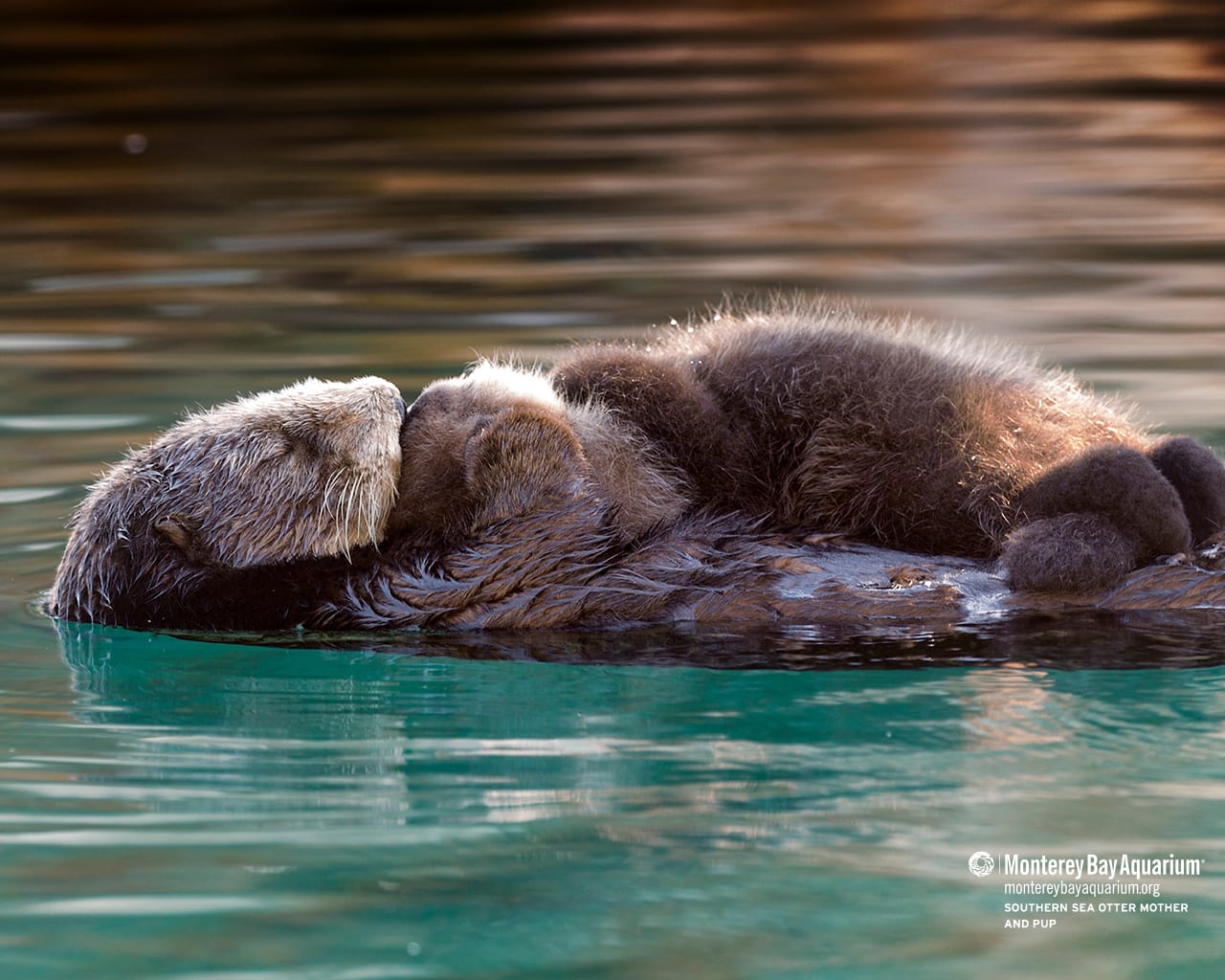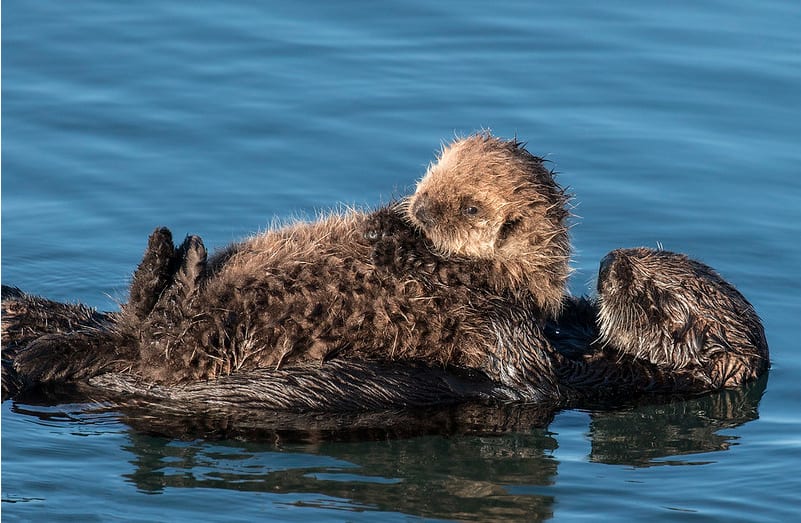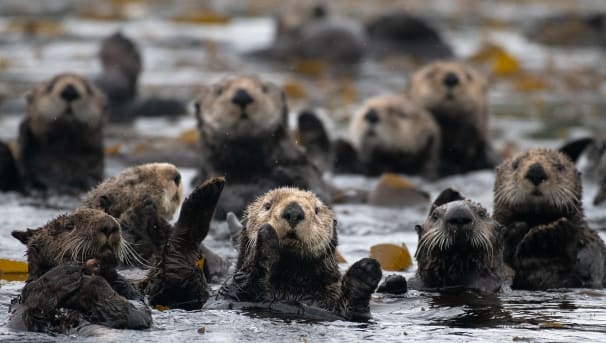Help our Bio Dept Protect Baby Otters from Oil Spills! (Nov 2020)
The sea otter is listed as threatened under the 1977 Endangered Species Act and is also protected under the 1972 Marine Mammal Protection Act. The rocky nearshore communities where sea otters forage and the prey they consume are repositories for oil, making otters particularly vulnerable to both internal and external effects of oil spills. Sea otters have the densest fur of any animal on the planet, and when that dense fur gets dirtied or oiled, the fur cannot efficiently keep the otter warm in the cold California waters, causing the sea otters to die of hypothermia. Currently, a mixed group of Cal Poly graduate and undergraduate students, led by graduate student Kate Riordan, are working in collaboration with the Monterey Bay Aquarium to conduct research on the differences in fur buoyancy of sea otter pups versus adult sea otters. With this live buoyancy data from the aquarium, the students will be able to make comparisons to their in-lab fur buoyancy data to understand how oil affects the fur's buoyant properties. Ultimately, this research aims to determine whether younger sea otters are more vulnerable to the effects of oil spills compared to the adults, and to examine whether current oil cleaning protocols for otters are efficient. This study will help rehabilitators listed under the Federal Southern Sea Otter Recovery Plan care for otters more efficiently by understanding how their fur works. This is a landmark study as sea otters past research has not explored this specific field of research!
 Students involved in this project will receive valuable hands-on experience both in regards to field research as well as community education and outreach. Upon completion of the study, students will work in tandem with Monterey Bay Aquarium, Cal Poly’s Center for Coastal Marine Sciences, and Sea Otter Savvy to develop implement educational programs to encourage public involvement. This will be achieved by providing videos and paper materials on how important sea otters are for the California kelp forests, and how detrimental a spill would be if one occurred in their range. It is our hope that increased education will heighten public awareness around the importance of sea otters as a keystone species.
Students involved in this project will receive valuable hands-on experience both in regards to field research as well as community education and outreach. Upon completion of the study, students will work in tandem with Monterey Bay Aquarium, Cal Poly’s Center for Coastal Marine Sciences, and Sea Otter Savvy to develop implement educational programs to encourage public involvement. This will be achieved by providing videos and paper materials on how important sea otters are for the California kelp forests, and how detrimental a spill would be if one occurred in their range. It is our hope that increased education will heighten public awareness around the importance of sea otters as a keystone species.

This project will both serve as the basis for multiple undergraduates senior projects as well as result in a completed master’s thesis that will generate a minimum of two peer-reviewed scientific publications, which will disseminate the results to the greater scientific community. Not only will this study help take steps to protect a species vital to California's marine ecology, it will provide students involved with an invaluable learn by doing experience through field research and community engagement. Your generous gift will help fund travel to and from the Monterey Bay Aquarium as well as help purchase the necessary supplies needed to move this study forward.
$12
Waterproofing Sealant
This will be used to seal the sea otter pelts to a surface so we can collect data on the underwater buoyancy of sea otter fur!
$20
64gb SD Cards
A gift $20 helps purchase an SD card to be used to collect live footage of the sea otters swimming at Monterey Bay Aquarium. Keep an eye out for some videos!
$65
Round-Trip Gas
A gift of $65 will cover the cost of gas for one student researcher to travel to and from the Monterey Bay Aquarium!
$150
Two Gallons of Crude Oil
A gift of $150 purchases two gallons of crude oil that we can use to test its effects on sea otter pelts!
$300
Overnight Hotel Stay
A generous gift of $300 will cover multiple night's stay at a hotel allowing student researchers to take data on the sea otters over the course of a longer period of time.
$500
Sponsor a Weekend Excursion!
Your generous gift of $500 would support a full weekend research excursion, including gas and food for the students, to the Monterey Bay Aquarium!


